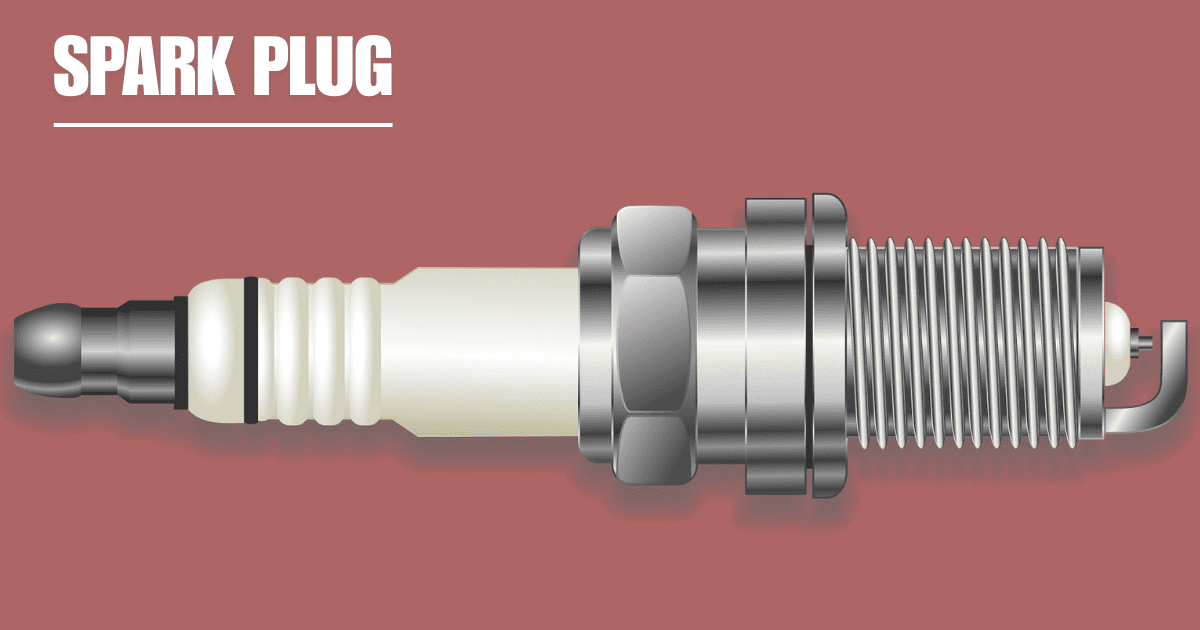Your vehicle’s spark plugs are often overlooked, yet they play a vital role in keeping your engine running smoothly. These unsung heroes ignite the mixture of air and fuel inside the cylinders, which powers your car. Over time, however, old or worn spark plugs can wear out, leading to performance issues and causing serious damage if ignored. A fouled or bad spark plug may become dirty, covered with oil, carbon, or fuel residues, or even get blistered from running too hot. Recognizing these signs early can prevent potential breakdowns and save you from costly repairs.
If your car shows symptoms like hard starts, engine misfires, or rough idling, the spark plugs could be the culprit. You might also notice reduced gas mileage, sluggish acceleration, or a declining fuel economy, all pointing to bad spark plugs. Ignoring these problems can result in more severe issues, such as engine knocking or poor performance over the long term. Regularly checking your spark plugs and replacing them as needed can help you avoid a costly mistake.
At times, drivers might assume that a car’s trouble starting is due to a battery problem, but often it’s these small components that are at fault. Despite their size, spark plugs pack a punch when it comes to your car’s performance. Experts, like the friendly staff at Wilco, can guide you to find the correct plugs using tools like the Reg Finder. Whether you’re trying to prevent serious damage or maintain your engine health, staying proactive about your spark plugs is essential for a smooth driving experience.
What Causes Spark Plugs to Fail?

Spark plugs are built to last, but they’re not invincible. Over time, several factors can cause them to go bad. One common issue is wear and tear. Continuous exposure to high temperatures and the constant sparking process wears down the electrodes, reducing the spark plug’s effectiveness. Another factor that contributes to poor performance is carbon buildup. If your engine is running too rich, meaning there’s too much fuel in the air-fuel mixture, carbon deposits accumulate on the plug tip, insulating it and preventing it from firing correctly. This leads to incomplete combustion, which hinders your engine’s performance, causing reduced performance and increased fuel consumption.
Additionally, oil fouling is another cause of spark plug failure. Internal engine oil leaks from faulty piston rings or valve guides can result in oil-soaked or fouled spark plugs. These deposits render the plugs ineffective and can lead to misfires, decreased fuel economy, and poor engine performance. Overheating is also a culprit, especially if the spark plug gap is incorrect, or poor fuel quality is being used. Cracked insulators are another physical sign to watch for. The ceramic insulator around the plug is designed to withstand high temperatures, but cracks in it can cause leakage, significantly reducing the spark plug’s effectiveness and potentially causing engine misfires or difficulty starting.
How to Recognize When It’s Time to Replace Your Spark Plugs?
If your spark plugs are faulty or worn-out, it’s time to replace them. Inefficient combustion due to faulty spark plugs can cause your engine to not run efficiently, negatively impacting its performance. You may notice reduced fuel efficiency, lack of acceleration, or an overall dip in performance. This is because spark plugs that don’t work properly interfere with the combustion process, causing the engine to operate with less power and efficiency. If you’re experiencing trouble with acceleration, or your vehicle seems to be struggling during normal engine operation, it’s a sign that your spark plugs aren’t providing the consistency needed to maintain proper fuel efficiency and engine performance.
Reduced gas mileage
If your spark plugs are worn-out or fouled, they won’t burn fuel efficiently, which can lead to a sudden drop in fuel economy. These dirty spark plugs are no longer functioning properly, causing a negative impact on your gas mileage. When your spark plugs are at their last leg, your vehicle will need to use more fuel to keep running, and you’ll find yourself shelling out more money for fill-ups. This increase in fuel consumption happens because the fuel isn’t being burned efficiently. The spark plugs’ role in maintaining fuel efficiency is crucial, so when they’re not working correctly, it’s time to replace them to avoid frequent trips to the gas station and prevent wasted fuel.
Lack of acceleration
If your vehicle is struggling to get up to speed or feels sluggish when you press the accelerator, the spark plugs might be the culprit. Fouled spark plugs can no longer ignite the fuel efficiently, leading to delayed acceleration and reduced performance. A dirty spark plug can prevent the fuel mixture from burning properly in the cylinders, resulting in a lack of get-up-and-go. You’ll notice it’s harder to merge onto highways or pass in the passing lane because the car fails to propel you forward as expected. If your car seems unresponsive or takes too long to get up to speed, it’s time for a spark plug change to restore your vehicle’s energy and performance on the roads.
Hard starts
When your vehicle won’t start, the first thought is usually a dead battery or an empty gas tank, but sometimes the issue lies in the spark plugs. Old or worn-out spark plugs struggle to create the spark needed to start the engine. This can lead to an extended crank time, or even cause the car to stall right after start-up. In some cases, a damaged spark plug or spark plug wires may be preventing the ignition process from working correctly. If your car struggles to ignite or fails to start even after a few attempts, it may be a sign that your spark plugs need to be checked or replaced. In the worst cases, this could leave you stuck in the driveway, with the engine not turning over, signaling the need for new spark plugs.
Engine misfires
When your engine misfires, you may notice the car jerking or having uneven power delivery. This happens when the cylinders aren’t firing correctly, which disrupts the combustion process. Faulty spark plugs can cause the engine to hesitate, making it harder for the vehicle to run smoothly and leading to a rough engine performance. You may also experience a momentary cut-out or noticeable stuttering during acceleration. Over time, this can lead to declining fuel economy as the engine works harder, consuming more fuel and power, and it can even cause lasting damage if not addressed.
Rough idling
If your engine is idling roughly, making strange noises like rattling or knocking, it could be due to bad spark plugs. When spark plugs aren’t firing correctly, they can cause the engine to run unevenly, resulting in vibrations and a jittery sound. This can make your vehicle feel disconcerting as it idles, and if left untreated, it can lead to costly damage to sensitive components. Ideally, a well-performing engine should be smooth, with no noticeable vibrations or rough idling, almost like the engine is purring like a kitten.
Engine Knocking
If you hear a knocking sound coming from your engine, it could be a sign of engine misfiring due to faulty spark plugs. When spark plugs fail to ignite the fuel at the proper time, it can cause improper detonation and late combustion, resulting in that distinct knocking noise. This indicates that the air-fuel mixture is not being ignited efficiently, leading to potential engine damage if left untreated. Engine knocking over time can significantly affect your vehicle’s performance and cause premature wear, requiring costly repairs to fix the ignition issue
Next steps
If your vehicle is experiencing issues related to bad spark plugs, it’s important to act quickly to avoid serious problems. While fouled or dirty spark plugs may seem like a minor issue, ignoring them can lead to costly repairs later on. If you’re unsure about the problem, it’s a relatively easy fix for a trusted mechanic to inspect and replace them. Avoid continuing to drive the vehicle until the issue is resolved, as this can cause further damage. For specific questions or concerns, always seek professional advice from a certified technician to ensure proper handling and avoid any liability or loss.
